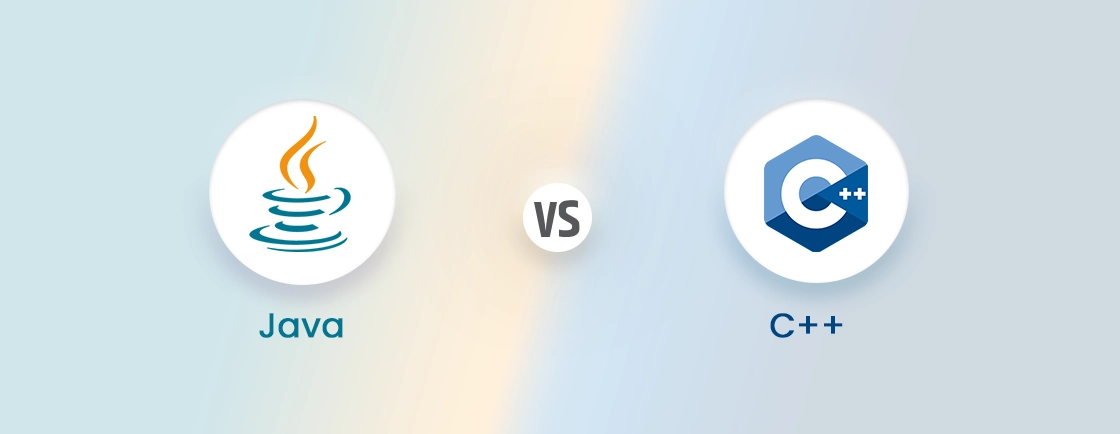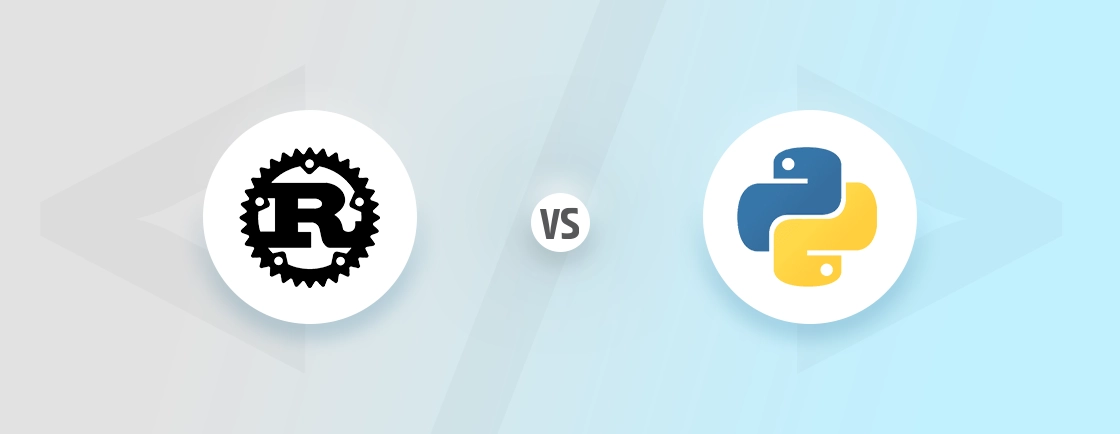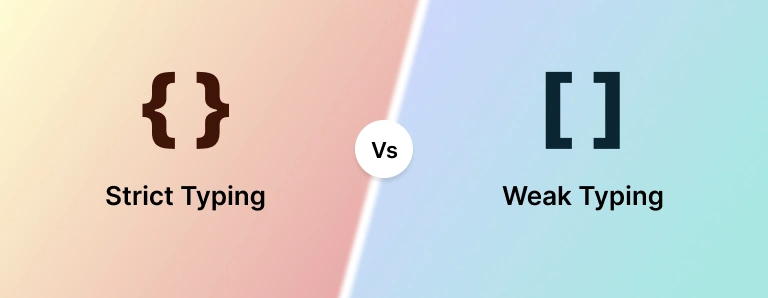Table of Contents
When it comes to choosing a programming language for your next project, the debate between C# and Java often comes up. Both have been around for years and have strong communities, but how do you know which one is better for your needs?
With so many factors to consider, it can be tough to decide. If you’re looking for Java developers for hire, our team recommends Java for application development, but C# also has its unique use cases where it shines.
In this blog, we’ll break down the key differences between C# and Java, so you can decide which one is the right fit for your project. Let’s discuss the strengths of each language and how they stack up today.
C# vs Java: Comparison Table
When it comes to choosing between C# and Java, it helps to know the key differences. Let’s have a look at the quick comparison to help you decide which one suits your needs better.
| Feature | C# | Java |
|---|---|---|
| Developer | C# developers or .NET developers | Java developers |
| Platform | Primarily Windows, but cross-platform via .NET Core | Cross-platform (Windows, Mac, Linux, etc.) |
| Syntax | Similar to Java, but with some unique features | Clean, simple, and well-established syntax |
| Performance | Excellent performance on Windows and through .NET Core | Consistently good performance on most platforms |
| Use Cases | Web apps, desktop apps, games (especially in Unity), enterprise applications | Web apps, Android apps, enterprise-level software, big data |
| Community | Strong in Microsoft ecosystem, especially for enterprise and game development | Large global community, especially in Android development and enterprise |
| Learning Curve | Easier for beginners, especially with .NET tools and Visual Studio | Slightly steeper learning curve, but plenty of resources and documentation |
| Development Tools | Visual Studio, Visual Studio Code, Rider | IntelliJ IDEA, Eclipse, NetBeans |
| Cross-Platform | .NET Core allows cross-platform development (Windows, Linux, Mac) | Always cross-platform (mainly Windows, Linux, Mac, Android) |
| Open Source | Mostly open source, .NET Core is open | Fully open-source with a large number of libraries |
| Mobile Development | Xamarin for cross-platform apps (iOS, Android) | Android development (native Java apps) |
| Performance Optimizations | Just-in-time (JIT) compilation, easy integration with Windows-specific optimizations | JVM-based performance tuning, and multi-threading capabilities |
| Concurrency Support | Strong, with async/await patterns for efficient multithreading | Well-established multi-threading and concurrency libraries |
| Corporate Support | Supported by Microsoft and the .NET Foundation | Backed by Oracle, with widespread use in large-scale enterprise apps |
| Web Frameworks | ASP.NET for web apps, Blazor for web apps using C# | Spring, Hibernate, and JavaServer Faces (JSF) for web apps |
| IDE Support | Excellent support in Visual Studio, VS Code | Excellent support in IntelliJ IDEA, Eclipse, NetBeans |
Simply put, both C# and Java have their unique advantages, so pick the one that fits your project goals and the environment you’re working in.
Overview of C#
C# (pronounced “C-sharp”) is a versatile and powerful programming language developed by Microsoft. It’s part of the .NET ecosystem and is commonly used for building desktop applications, web services, games, and mobile apps. C# is known for being easy to learn and use, especially if you’re familiar with other C-style languages like Java or C++. It offers a mix of modern features, making it ideal for a wide range of projects.
Key Features of C#
Some key features that make C# stand out are:
- Strongly Typed: C# is a strongly-typed language, meaning that it requires you to define variables with specific data types (like integers or strings). This helps catch errors early and makes your code more reliable.
- Garbage Collection: C# handles memory management for you with a built-in garbage collector, which automatically clears unused memory to avoid memory leaks.
- Modern Syntax: The syntax is clean and concise, with features like LINQ (Language Integrated Query) that allow you to query data more easily, making it a great choice for modern software development.
- Asynchronous Programming: C# supports async programming, which helps in handling tasks like file I/O and web requests more efficiently, making apps faster and more responsive.
In short, C# is a really powerful and popular programming language. These features make C# a solid choice for a variety of development needs, especially if you’re working within the Microsoft ecosystem or aiming for cross-platform compatibility.
Overview of Java
Java is one of the most popular programming languages in the world, known for its “write once, run anywhere” capability. Developed by Sun Microsystems (now owned by Oracle), Java is designed to be simple, reliable, and secure. It’s widely used for building web applications, mobile apps, desktop applications, and even large-scale enterprise systems. What makes Java stand out is its portability – applications built with Java can run on any device with the Java Virtual Machine (JVM), making it highly versatile across different platforms.
Key Features of Java
Here are the main features that make Java a go-to language for developers:
- Platform Independence: The phrase “write once, run anywhere” refers to Java’s ability to run on any device that has the Java Virtual Machine (JVM). This makes Java applications highly portable.
- Memory Management: Java has an automatic memory management system called garbage collection. It automatically clears out memory that is no longer needed, reducing the chances of memory leaks and improving application performance.
- Multithreading: Java supports multithreading, which means that your program can run multiple parts of code at the same time. This is essential for creating high-performance applications that need to handle many tasks simultaneously.
- Rich API: Java offers a comprehensive set of built-in libraries (APIs) that simplify tasks like networking, file I/O, database connectivity, and more. These help developers avoid “reinventing the wheel.”
- Security: Java has strong security features, including the ability to run programs in a restricted environment, preventing harmful actions. It’s designed with security in mind, making it a solid choice for developing sensitive or secure applications.
In easy words, Java’s “write once, repeat anywhere” approach along with its features contribute to its widespread popularity and make it a reliable and flexible choice for developers around the world.
Detailed comparison of Java vs C#
To ge a better understanding of Java and C#, let’s have a look at how both of these programming languages compare based on different parameters.
Platform Compatibility
Understanding how these languages interact with different platforms can significantly impact the deployment and accessibility of your application.
C#: Works best on Windows systems because it’s part of the .NET framework, which was originally designed for Windows. However, with .NET Core, C# can now also run on macOS and Linux, making it more cross-platform than before.
Java: It is known for its excellent platform compatibility. Thanks to the Java Virtual Machine (JVM), Java programs can run on any platform that supports the JVM (Windows, macOS, Linux, etc.), following the principle of “write once, run anywhere.”
Verdict: Java has a clear advantage in platform compatibility because of its ability to run seamlessly across many systems with the JVM.
Performance
Comparing Java and C# in terms of execution speed and resource management helps determine which language is better suited for high-performance applications.
C#: It is known for its excellent performance, especially when running on Windows. Since C# is compiled to intermediate language (IL) and then executed by the Common Language Runtime (CLR), it tends to be faster in Windows environments.
Java: The performance can be a bit slower compared to C# due to the overhead of running on the JVM. While the JVM has improved over time, Java apps might take slightly longer to start up, and they may use more memory compared to C# applications.
Verdict: C# generally offers better performance, especially in Windows-based environments, but Java is still quite efficient and works well for most applications.
Syntax
The syntax of a programming language plays a big role in its readability, ease of use, and developer productivity.
C#: It has a syntax that’s similar to other C-based languages like C++ and Java. If you’re familiar with C-style languages, C# will be easy to understand. It uses curly braces for blocks of code and semicolons to end statements.
Java: The syntax is also similar to C-based languages, which makes it easy to pick up if you already know C or C++. Java uses curly braces for defining blocks of code and semicolons to separate statements.
Verdict: Both languages are very similar in syntax, making it easy to switch between the two if needed. There’s no major winner in this category.
Libraries and Frameworks
The availability and quality of libraries and frameworks can drastically reduce development time and effort.
C#: It has a rich set of libraries and frameworks through the .NET ecosystem, which makes it easier to build web apps, desktop apps, games, and mobile apps. Popular frameworks include ASP.NET for web development and Xamarin for mobile development.
Java: It also has a vast collection of libraries and frameworks, such as Spring, Hibernate, and JavaFX. Java is especially popular in enterprise environments, big data systems, and Android app development, with many mature and well-established tools.
Verdict: Both languages offer great frameworks, but Java has more mature and established options for enterprise-level and large-scale projects, while C# excels with modern development, especially for web and mobile.
Community and Support
A strong community and good support channels can make a significant difference in solving development challenges.
C#: It has a large and active community, especially because of its connection to Microsoft and its widespread use in enterprise environments. Microsoft provides extensive support and resources for developers working with C#.
Java: It has one of the largest and most active communities globally. It’s been around for decades and has vast documentation, forums, and resources for developers. Many open-source projects and libraries are built using Java.
Verdict: Java wins in community size and long-term support because it’s been around for much longer. However, C# is still widely supported, particularly in the Microsoft ecosystem.
Development Speed
Faster development speed makes it easy to meet delivery deadlines. Also, it makes it easy to make changes when needed.
C#: It supports rapid development thanks to tools like Visual Studio, which provides an integrated development environment (IDE) with features like code completion, debugging, and easy project management. This helps developers speed up their workflow.
Java: Java is also supported by powerful IDEs like IntelliJ IDEA and Eclipse, which provide similar features. However, Java sometimes requires more setup for larger projects, and the build process may take a bit longer compared to C#.
Verdict: C# tends to have an advantage in development speed, thanks to its excellent tooling and integration with Visual Studio.
Cross-Platform Support
Cross-platform support is important as applications need to run on multiple devices and operating systems.
C#: With the introduction of .NET Core, C# has become cross-platform, allowing developers to build applications that can run on Windows, Linux, and macOS. However, its primary strength remains in Windows-based development.
Java: It is inherently cross-platform, meaning it can run on any operating system that supports the Java Runtime Environment (JRE). Java apps are truly cross-platform, and the JVM handles most of the hard work to ensure apps run smoothly on different systems.
Verdict: Java has better cross-platform support out of the box. It’s been designed to be truly cross-platform, making it a more reliable choice for developers working across different operating systems.
Mobile Development
Comparing Java and C# for mobile app development helps developers choose the language that best supports their mobile strategy.
C#: It supports mobile app development using Xamarin, a framework that allows you to build apps for iOS, Android, and Windows from a single codebase. Xamarin is powerful, but it’s more suited for cross-platform development.
Java: It is the primary language for Android app development. It’s widely used for building Android apps because of its rich ecosystem and long history in mobile development. However, Java isn’t used for iOS development.
Verdict: Java is the top choice for Android app development, while C# excels at cross-platform mobile development using Xamarin.
Security
Security is a critical aspect of software development, particularly in an era where cyber threats are ever-present.
C#: It offers strong security features, including code access security (CAS), encryption libraries, and the ability to use certificates and authentication services. These make it a good choice for building secure applications.
Java: It also has a solid security model, with features like bytecode verification, cryptography, and a sandbox environment. Java is often used in environments where security is a top priority, like banking and financial apps.
Verdict: Both languages offer excellent security features. If you’re building a high-security application, both C# and Java are solid choices, though Java has a longer history in security-sensitive environments.
Simply put, the choice between Java and C# comes down to your project’s requirements. Both have their strengths, so understanding these key differences will help you pick the best fit for your development goals.
Companies Using Java and C#
C# and Java are popular programming languages used by some of the biggest companies in the world. Let’s take a look at who’s using them and how these languages are powering major brands across different industries.
Companies Using C#:
C# is widely used across different industries. Many large companies rely on it for developing applications and managing data. Some well-known companies using C# include:
- Delivery Hero
- Accenture
- Hepsiburada
- Stack Overflow
- Alibaba Travels
- Intuit
- Trustpilot
- ViaVarejo
- Nuance
- City National Bank
- Microsoft
- ServiceTitan
- Bank Of America
Companies Using Java:
Java has been around for a long time and is still a popular choice for many companies, especially in the tech industry. Some of the biggest companies using Java include:
- Uber
- Airbnb
- Netflix
- Spotify
- Amazon
To sum up, both C# and Java are used by top companies across the world, showing how powerful and reliable these languages are for building a wide variety of applications. Whether it’s tech, banking, or e-commerce, both Java and C# help businesses succeed.
How to Choose Between C# and Java?
Choosing between C# and Java depends on your project needs and what you’re most comfortable with. Let’s break it down:
Choose Java If:
- You’re developing cross-platform applications (Java works on Windows, macOS, and Linux).
- You want a large, active community and lots of libraries.
- You’re interested in building Android apps, as Java is the main language for Android development.
- You prefer working with well-established frameworks like Spring or Hibernate.
Choose C# If:
- You’re planning to develop Windows applications or desktop software.
- You’re working with Microsoft technologies like .NET, Azure, or Visual Studio.
- You’re into game development, especially with Unity (C# is the go-to language for Unity).
- You like a language that’s tightly integrated with the Windows operating system and services.
In short, Java is great for cross-platform projects and Android apps, while C# is perfect for Windows-centric projects and game development. It all depends on your project goals and which environment you feel most comfortable in.
C# vs Java: What to Choose?
Both C# and Java are capable and popular programming languages today. Both have unique features, strengths, and use cases. C# shines in Windows and game development, while Java is known for its cross-platform capabilities and Android apps.
Choosing between the two depends on your project. If you’re building Windows apps or games, C# might be your go-to. But if you’re targeting Android or need something cross-platform, Java could be the better option. In the end, both are strong contenders for the future, and your decision should align with your project goals.
If you want to develop reliable Java applications, our professional Java development company is here to help. Visit us today.
FAQs on C# vs Java
Is C# better than Java?
Neither is strictly better than the other. It depends on what you’re trying to build. C# is great for Windows apps and game development, while Java excels in cross-platform apps and Android development. The best choice depends on your specific project needs.
Which is better for my project, C# or Java?
If you’re focusing on Windows or game development, C# might be the way to go. For cross-platform applications or Android development, Java could be a better fit. Consider the type of app or software you want to create when making your choice.
Which language is future-proof, C# or Java?
Both languages have a strong future. Java is widely used in big enterprise applications, Android development, and web development. C# is growing in popularity, especially in game development with Unity and enterprise solutions. Both languages will likely remain relevant for years to come.
Compare the best tech side by side.
Our in-depth comparisons help you see features, pros & cons, and choose the right tools confidently.





